The Story of Alabama in Fourteen Foods
Alabama’s history and culture revealed through fourteen iconic foods, dishes, and beverages.
The Story of Alabama in Fourteen Foods explores well-known Alabama food traditions to reveal salient histories of the state in a new way. In this book that is part history, part travelogue, and part cookbook, Emily Blejwas pays homage to fourteen emblematic foods, dishes, and beverages, one per chapter, as a lens for exploring the diverse cultures and traditions of the state.
Throughout Alabama’s history, food traditions have been fundamental to its customs, cultures, regions, social and political movements, and events. Each featured food is deeply rooted in Alabama identity and has a story with both local and national resonance. Blejwas focuses on lesser-known food stories from around the state, illuminating the lives of a diverse populace: Poarch Creeks, Creoles of color, wild turkey hunters, civil rights activists, Alabama club women, frontier squatters, Mardi Gras revelers, sharecroppers, and Vietnamese American shrimpers, among others. A number of Alabama figures noted for their special contributions to the state’s foodways, such as George Washington Carver and Georgia Gilmore, are profiled as well. Alabama’s rich food history also unfolds through accounts of community events and a food-based economy. Highlights include Sumter County barbecue clubs, Mobile’s banana docks, Appalachian Decoration Days, cane syrup making, peanut boils, and eggnog parties.
Drawing on historical research and interviews with home cooks, chefs, and community members cooking at local gatherings and for holidays, Blejwas details the myths, legends, and truths underlying Alabama’s beloved foodways. With nearly fifty color illustrations and fifteen recipes, The Story of Alabama in Fourteen Foods will allow all Alabamians to more fully understand their shared cultural heritage.
Emily Blejwas is author of the novel Once You Know This and director of the Gulf States Health Policy Center in Bayou La Batre, Alabama.
Emily Blejwas
Emily Blejwas was kind enough to take some time (never mind finding the time) away from her full time job, her writing, as well as her four kids. to chat with us about her newest book The Story of Alabama in Fourteen foods.
BooksAboutFood.com(BAF:)I should ask, are you a Southerner yourself, originally?
Emily Blejwas: No, well, I grew up in Minnesota. I’ve been in Alabama since 2004, so 15 years. And my grandparents and my Dad are all from the South, so even though I was raised in Minnesota, I had a southern Dad and both sets of grandparents were from the South. And so I visited the South often as a kid, and I was always just really interested in it, and intrigued by it.
BAF: So what eventually drew you to the South?
Emily Blejwas: It was just kind of a fluke. My husband got a job in Montgomery originally, and we thought we would just go down, and spend a year or two, and just live somewhere different. He’s from Connecticut. And we just really loved it, and we kept staying, and eventually moved into Mobile on the coast. And really love Mobile. We’ve been here ever since.
BAF:It’s one of the things you mentioned in your book, or you focused on, was just how important the port of Mobile actually is. I think people tend to overlook it.
Emily Blejwas: Yeah, that’s true, that’s true. And I actually work in Bayou La Batre, which is a tiny little shrimping and shipbuilding town right on the water, even further South than Mobile, on the gulf. So that’s interesting, too, because it’s a totally different place than Mobile. Even though it’s only 25 miles away and there’s a lot of really interesting history there too. And it has a large Southeast Asian immigrant population, which you don’t think of when you think of Alabama.
And that’s one of the reasons I wanted to write the book, is because I feel like Alabama is so much more diverse, and textured, and interesting than it gets credit for. I was giving a presentation yesterday and I had a picture of a Buddhist statue, in the presentation, that’s in Bayou La Batre outside the Vietnamese temple down here. And that’s just not an image that you would necessarily associate with Alabama, but there’s just a lot of difference and different things here.
BAF: That’s one of the things that is fascinating about the South is the actual diversity that has developed and Southern cuisine is now adapting to and embracing.
Emily Blejwas: Right, and I think it’s important to remember too that Southern food was always a mix. Since the very beginning, Southern food really as a separate entity is a blend of Native American, African, and European traditions. And that’s kind of how it started, as just a blend of those cooking techniques, but also the ingredients themselves. When you look at a dish like gumbo, it’s got ingredients from across the world really. So it’s cool that that’s the way Southern food began, and that’s the way it’s continued is to just welcome those new influences and keep blending.
BAF: How did this book come about?
Emily Blejwas: It was another just kind of mistake, really. I, so I got to Alabama and I was a master’s student at Auburn University. And I was just studying, because I was new to the state, I was studying just everything I could find about Alabama. I was going to all the community meetings, just really trying to steep myself in the culture, going to all the festivals and everything. And I was really interested in civil rights history. Especially because there’s a lot of civil rights sites in the state, and especially in the Black Belt area, that are not well-marked, or that are unmarked. And I felt like Alabama civil rights history is so important, and there’s so many things that happened here that were of national significance.
And so I really started developing a civil rights trail guide. And then when I sent everything to the University of Alabama Press, they were like “Well this is great work, but we already have a book that is pretty similar to this, and there’s no way that we can publish it.” So they said “But we really like the idea of doing some kind of trail, what about doing a different kind of trail?” And food was one of the things that they mentioned. And so that was where the book started, just by them saying what about doing a food trail.
And so I didn’t want to do a cookbook or a food travelog cause I felt like that had been done so well already. And so I made a big list of foods that I felt were Alabama foods, like four, I started with probably 40 foods. And just started researching the foods themselves, looking, and it morphed into this idea about telling the story of the state history by using food. So using food as an entry point, or a lens, or a vehicle for telling these different stories about Alabama. So I was looking for really strong Alabama stories, Southern stories, but those that had a tie to the state. And I was interested in the lesser known stuff, too.
And so it ended up being eventually 14 foods. That wasn’t really a magic number, but I was trying to be balanced as far as geography. So I have the Gulf Coast, the Black Belt, the Wiregrass, Appalachia. I mean Alabama’s so geographically mixed. So I wanted all those places to be represented. And then of course, racially diverse, and diverse in terms of time, too. So I wanted to be able to talk about the early Mississippian era, the Native American history, but also the Civil Rights Movement and how the Women’s Movement showed up in Alabama. And then the very last chapter is the one about Bayou La Batre, the little shrimping town. And that gave me the chance to talk about Hurricane Katrina, and the BP oil spill, which are probably the most modern events in the book. So it was really just an organic process, I guess.
BAF: Very Organic, for lack of a better word.
Emily Blejwas: I tried to be balanced in terms of the foods themselves, too. So I didn’t, I wanted to do some meat, and some vegetables, and some desserts, and I had sweets in there as well. So there were chapters I wanted to do, but I felt like it would skew it too far in different directions. So that was another thing I thought about.
So, for example, I wanted to do oysters, but I already had gumbo, and shrimp, and I didn’t want to do another seafood, and another Gulf coast food. And so I made decisions kind of like that. But I also had to have enough content to build a whole chapter around, too. So I wanted to do collards, but I had a chapter, the fried green tomatoes chapter, which is really all about vegetables in the Southern diet, and rural life, and farm families. And so I couldn’t really build a whole nother chapter around a vegetable. So those decisions, the food sort of, it shook itself out in a way. So it just ended up being those 14, but it’s the kind of book where you could probably write the whole thing again with 14 different foods. I mean there’s so many stories out there, and so many foods, and pecans aren’t in there, peaches. I mean, so there’s a lot that I wasn’t able to do. Just do because you have to make those decisions.
BAF: A lot of the dishes are fairly well known. But there’s a few that I don’t know if people are going to recognize. Like Lane Cake.I may have eaten it, but I don’t recall seeing it before.
Emily Blejwas: Yeah. Lane Cake’s an interesting one, because it was invented in 1898 in Clayton, Alabama. It was published, self published, and her name was Emma Rylander Lane. Her cookbook, which was called Some Good Things To Eat. Which is the most hilarious title of a cookbook ever. It was made in the early decades of the 20th century, around Christmas time. It was a three layer cake, and it was pretty laborious to make. And a lot of people remember their grandmothers making it for the holidays, especially Christmas, and sometimes Thanksgiving. And it’s mentioned in To Kill a Mockingbird, which of course was written by an Alabama native, Harper Lee. So it has this really strong Alabama history, but it’s not a cake that necessarily, especially a lot of the younger generation know about. But it’s the only cake that I could find that was clearly an Alabama cake, invented by an Alabama woman, in Alabama, mentioned in To Kill a Mockingbird.
And then eventually it was actually made the state cake of Alabama in 2016, I think. So some people know it well, especially the older generations, and some people don’t. And then the other one is Chicken Stew, which is a really particular kind of chicken stew. And it’s only made in a handful of counties in the very Northern part of the state, and then over the border in Southern Tennessee, like six or seven counties. And it’s made in huge quantities, usually as a fundraiser. And it’s this really prolific tradition just in those counties. And so people in Mobile won’t know anything about Chicken Stew, but people in North Alabama will know all about it. So there’s kind of differences too, even within the state.
BAF: You must have people come up to you and say, “Well, I liked the book, but what about this? Or what about that?” Has anybody come up to you with a dish that maybe you didn’t know about? Or just something, an interesting story that has made you stop and think?
Emily Blejwas: I haven’t heard of any dishes that I didn’t know about. I mean, there’s a lot of what about biscuits? Well, yeah, I mean there’s so many foods that that should be and could be in there, but you can’t do it all. You have to make some decisions, or the book will just be too long. So I had a chapter on peanuts, George Washington Carver is from Alabama, and did magnificent work at Tuskegee Institute. I felt that his story, and his contributions to science, and to better humanity was such a strong story. And so I did a peanut chapter, but then you don’t do pecans, which are also a strong staple of Alabama. But if you two types of nuts, then the book just gets so expansive.
So I’ve definitely had people say, what about blackberry cobbler, and stuff like that, but not really in a negative way. I think people understand that you can’t do every single thing. But so far I haven’t had anyone tell me about a dish I hadn’t heard of in Alabama. I’ve definitely had people tell me about stuff in North Carolina, or South Carolina, these really particular food traditions. So that part’s really interesting to me, because I was really focused just on the state of Alabama. But of course every state has those little traditions that are found in little pockets of the of the country. So that’s been fun.
BAF: Did you have any ‘a-ha!’ Moments writing this, or something jumped out at you that you didn’t know about, or really took you by surprise?
Emily Blejwas: I went turkey hunting twice. There was a chapter on hunting and conservation in Alabama. And I was surprised, first of all, by how much I loved Turkey hunting. It’s a really quiet fast pace form of hunting. You have to know a lot about Turkey habits, and the natural world. You have to know about the vegetation, and you’re trying to track this Turkey, so you have to think about what he would do, where would go. And the people that I went hunting with were just, just had so much expertise about the natural world around them. And I was really impressed by that. That’s not something that I had ever thought about.
And then the other part of that is that nationally sportsman were the first real contributors to conservation nationwide, because they were going out trying to hunt, and they were noticing that all these feces and all these environments were disappearing. And so they really became the ones who had called for game laws, and bag limits, and preserving acreage that was disappearing. And I never had, and that’s the case for Alabama, as well. Still today, Turkey hunters give a massive amounts to conservation. That was not a connection that I had ever made, between hunters and conservation. Because you wouldn’t necessarily maybe think about hunters and environmentalists being on the same page, but they absolutely are.
And then of course the understanding that if they don’t preserve it, it won’t be there for them in the future, or for their kids, or future generations. Alabama actually is pretty good on conservation. So that was interesting. I didn’t expect it to have a chapter about that, or to go down that road. That was a nice surprise. Because hunting is such a big deal in this state. So I was glad that I was able to include it.
BAF: They’re a few that you don’t think are necessarily associated with Alabama. Like banana pudding, and I think of more of a Carolina or Georgia thing. Somehow barbecue, Mississippi and Tennessee seem to get the glory on that one. So it’s nice to see that the Alabama food ways are really well represented here. It’s nice to see.
Emily Blejwas: I think as a Southerner, I would be really suspect if I did a book without fried chicken and barbecue. I feel like those are probably the two that I knew that I had to put in there, because they’re pretty elemental across the South. So it was a little bit of a challenge to think about how am I going to do that differently? Because there’s, as you know, whole books on barbecue, there’s a whole book on just Alabama barbecue. And so it was a little challenging to think about how am I going to do a chapter on barbecue that’s going to contribute to the literature, because so much has already been written.
But I focused really on the history. And so that particular chapter is a lot about the civil rights movement in Selma, and this one particular barbecue restaurant where even during the voting rights movement, when bloody Sunday was happening, and it couldn’t be more violent, in Selma there were still African Americans, white people, Northerners, freedom fighters, all eating in this same restaurant. It was like this suspended state of tolerance, I guess. And so that became kind of the central story of that chapter. So that was kind of how I got around it, and tried to tell something unique, because a topic like barbecue has been done so much.
BAF: You got this terrific book out. What’s next?
Emily Blejwas:I don’t know. I’ve been just really enjoying traveling around, doing some talks about it. It’s a topic that people relate so easily to. Everybody’s got a favorite food, everybody’s got a story, or a recipe. And so for now I’m just kind of enjoying hearing all the stories, and it brings up a lot of memories for people, which, it’s very obvious when you think about it, but it wasn’t something that I had thought about. And so it’s really interesting to go out and give these talks, and then just hear people thinking back to their childhoods and calling up all those old memories that are connected with food. That part’s been really fun.
I also write fiction, and so I have a fiction book coming out next April. So I guess that’s what’s next for me in the book world. But I would really like to do another nonfiction. It was a really rewarding and difficult at times process. But I think to be able to tell a true story, there’s just nothing like it. It’s a really fun thing to be able to do, when you can find those stories.
And what was cool about this book is that there are no famous stories in this book, or over the top, or blockbuster kind of story. Like these are all stories of just regular people that I met just traveling through the state. These are just everyday people, like you and I, just doing their, going to work, and raising their families. So I think that’s what makes this book accessible, is that these are just food traditions and activities that we do every day. So that that’s what I like about how it turned out, is that it celebrates the everyday culture of Alabama.
BAF: You mentioned talks. Are you traveling around anywhere, or are you just staying mostly, somewhat local?
Emily Blejwas: I’m mostly staying in Alabama, because since it’s such a local topic. And I also, I have a day job. I work full time, and I have four kids.
So they, they’re very busy, too. But I’ve been around the state, I’ve been in Birmingham, and Auburn, and Mobile so far. And I’ve got plans to go to Doosan and I’m trying to hit different spots around the state. So it’s been fun.
Booksaboutfood.com © 2019
“Great history of Alabama and its fabulous food!” —Fannie Flagg
“Through the lens of food, The Story of Alabama in Fourteen Foods explores in vivid detail cultural groups across the state, revealing not only recipes for traditional dishes but also for survival and success during difficult times. Readers who already know Alabama history well will find this approach interesting and refreshing.” —Joyce H. Cauthen, author of Out of Whole Cloth: The Life of Bettye Kimbrell and With Fiddle and Well-Rosined Bow: A History of Old-Time Fiddling in Alabama


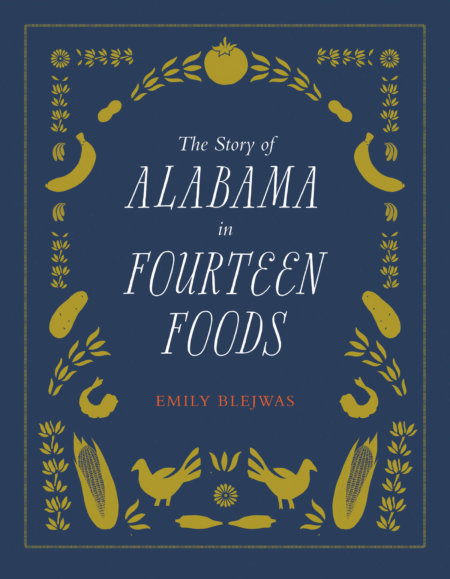



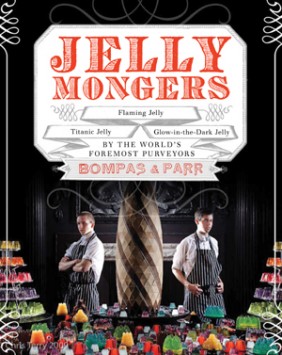
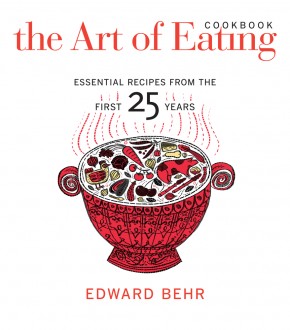
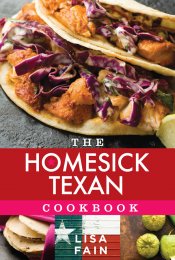
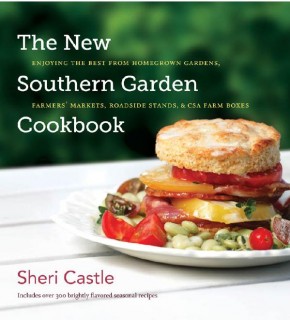
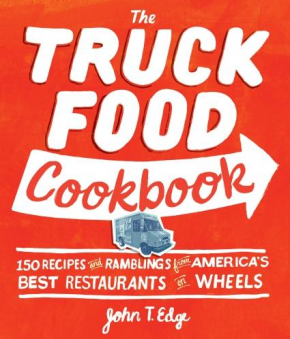
Leave a Reply